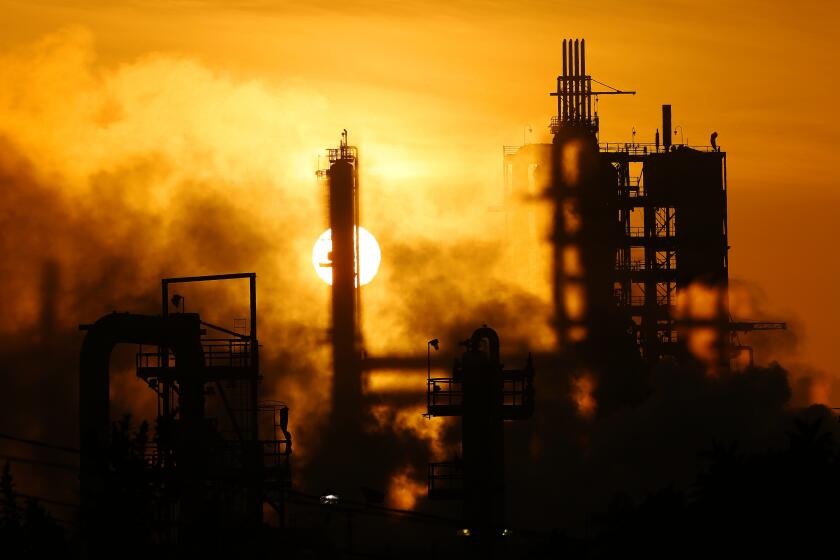After COP28, let’s make this the ‘beginning of the end’ of fossil fuels

- Share via
It took nearly three decades, but world leaders this week finally acknowledged the obvious: There is no way to slow climate change without winding down fossil fuels.
The agreement reached Wednesday by nearly 200 nations at the COP28 climate conference in Dubai is something of a breakthrough. For the first time, world leaders called for moving away from fossil fuels in energy systems.
Editorial: CalPERS must ditch fossil fuel investments. Its new ‘sustainable’ plan doesn’t do that
The nation’s largest public pension fund offers a weak strategy for reaching a net-zero portfolio, perhaps to head off legislation forcing it to divest from oil companies and other air-polluting industries.
It’s easy to criticize this deal, which followed two weeks of tough negotiations, as weak and insufficient. It is nonbinding and full of caveats and loopholes. It includes support for carbon capture technology and “transitional fuels,” code for natural gas, that would enable the continued burning of planet-warming hydrocarbons.
It calls for “transitioning away” from fossil fuels, rather than phasing out, which many entities, including the United States, the European Union and vulnerable island states, were pushing for. The weaker language is the reflection of heavy influence from polluting industries, OPEC and oil-rich nations that lobbied fiercely against targeting fossil fuels.
A U.N. report shows that big nations’ fossil-fuel-boosting actions are at odds with their emissions-cutting pledges. They must do better at the COP28 climate summit.
But the agreement is a milestone nonetheless. There is now a baseline global consensus on the need to move beyond fossil fuels.
Whether this deal truly signals the “beginning of the end” of the fossil fuel era, as U.N. officials have said, depends entirely on what steps countries take next to scale up clean, renewable energy and hasten the demise of planet-warming coal, oil and gas.
Now governments must quickly take action to avoid a disastrous future, including the collapse of ecosystems and mounting human suffering from worsening storms, fires, heat waves, floods and other climate-fueled disasters.
This will be a particular challenge for the U.S., which is the world’s top oil producer and is pumping out record amounts even as the planet records its hottest year. Oil and gas companies are doubling down on fossil fuels with big acquisitions and expansion plans, while using their record profits to attack, delay and undermine climate solutions including renewable energy and electric vehicles.
The American Ornithological Society says it is changing the names of birds named after humans, such as Townsend’s warbler. It’s a courageous decision.
But there are also signs of hope. The historic clean energy investments under the Inflation Reduction Act are beginning to transform the U.S. economy. In California, 1 in 4 new cars sold are now zero-emission and Los Angeles officials last year banned new oil drilling and will phase out existing wells.
Perhaps future generations will look back on 2023 as a turning point when the world’s leaders — hosted by a petroleum company executive in the oil-rich United Arab Emirates, of all places — changed course and finally got on a path toward ending fossil fuels that endanger our planet and the life it sustains.
But it’s up to all of us to hold our government accountable for delivering on these words and taking all necessary actions to close the door on the fossil fuel era.
More to Read
A cure for the common opinion
Get thought-provoking perspectives with our weekly newsletter.
You may occasionally receive promotional content from the Los Angeles Times.









